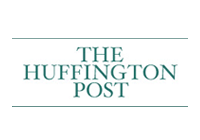
Being Fair to Fundamentalists
As a leader of a liberal religious movement, I spend much of my time fighting the forces of religious fundamentalism in my own tradition. An epic battle between fundamentalist religion and progressive religion is raging in America and throughout the world; it is found in Christianity, Islam and Judaism. In the last few months in particular I have been consumed with a struggle, played out on many fronts, with those in the Jewish community who oppose modernity, resist reason, and reject as inauthentic the progressive religious values that I espouse.
At times like this — in fact, especially at times like this — I find myself searching for common threads that bind me to those who are known as ultra-Orthodox or Haredi (“God fearing”) Jews. I find myself asking: What do I admire in those whose Jewish practice and belief are, in so many ways, radically different from my own?
I am not impressed by the fervor and apparent simplicity of their faith. For me, faith involves a complicated and difficult battle to overcome doubt; faith that is not filled with struggle is not faith at all. Neither am I impressed by their devotion to their religious leaders; this is a devotion that, in my eyes, often comes perilously close to replacing the worship of God with the worship of man.
But I am deeply impressed by the community building and mutual caring that I find in the Haredi world. I am struck by the sense of religious obligation that leads them to respond to those in their midst who are in distress. I see how promptly they reach out to community members who are ill, or in mourning, or have experienced a family tragedy. The ultra-Orthodox do not wait for the government to respond or for a social service agency to act. They have established institutions of their own, and what these bodies are unable to do is done by the extended family, or by neighbors, or by the synagogue. The alienation of modern life that eats away at our spiritual wellbeing and our sense of wholeness has, in large measure, passed over the ultra-Orthodox world.
I don’t mean to suggest that only the ultra-Orthodox are engaged in these good works. Liberal and progressive Jews also embrace the needy in their midst. Our congregations are better than they have ever been, and they often succeed in creating an organic sense of living community. Nonetheless, as head of a large liberal movement, I am troubled by the stories that reach my desk of liberal Jews who sit home alone on the Sabbath or on a Jewish holiday, who suffer in silence from a personal loss, or who feel isolated and abandoned despite their synagogue affiliation. Being thoroughly modern, our congregations must balance caring and human concern with respect for the privacy, independence, and individuality of our members. Getting that balance right, we have learned, is far from easy.
In short, there are things that we have to learn from the ultra-Orthodox about living community.
But, then again, there are many things that they have to learn from us. And chief among them is our insistence that caring, compassion and justice must be extended not only to our own narrow group, but to all Jews and to all humankind. This is an effort that is required by the sacred teachings of our tradition. Rashi, the great medieval Biblical commentator, points out that Moses told the spies, about to be dispatched to the Land of Canaan, that if they saw the inhabitants of the land living in walled cities, it was proof that they were weak. If they lived in open cities, they were strong. The ultra-Orthodox, with rare exceptions, do not understand the importance of being open to the world, and we do.
Who knows? Despite the vast differences between us, perhaps there are things that the liberals and the fundamentalists can learn from each other.


 Rabbi Eric Yoffie is a writer, lecturer, and internationally-known religious leader. A bold, compelling, and inspiring speaker, he has presented at the World Economic Forum in Davos and has appeared on Fox news, CNN, and many other news outlets. He writes regularly for Time, The Huffington Post, The Jerusalem Post and the Israeli daily Haaretz. He speaks on a
Rabbi Eric Yoffie is a writer, lecturer, and internationally-known religious leader. A bold, compelling, and inspiring speaker, he has presented at the World Economic Forum in Davos and has appeared on Fox news, CNN, and many other news outlets. He writes regularly for Time, The Huffington Post, The Jerusalem Post and the Israeli daily Haaretz. He speaks on a 
